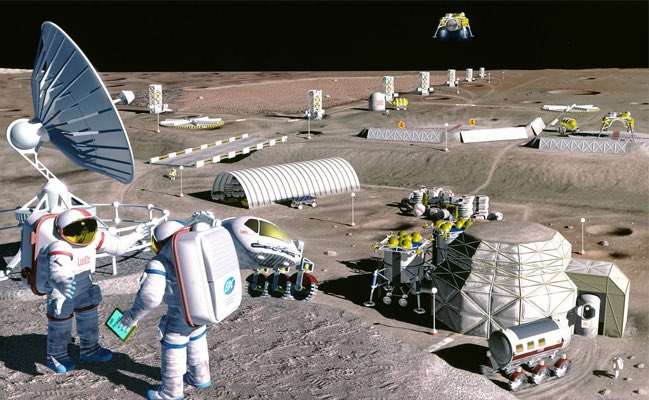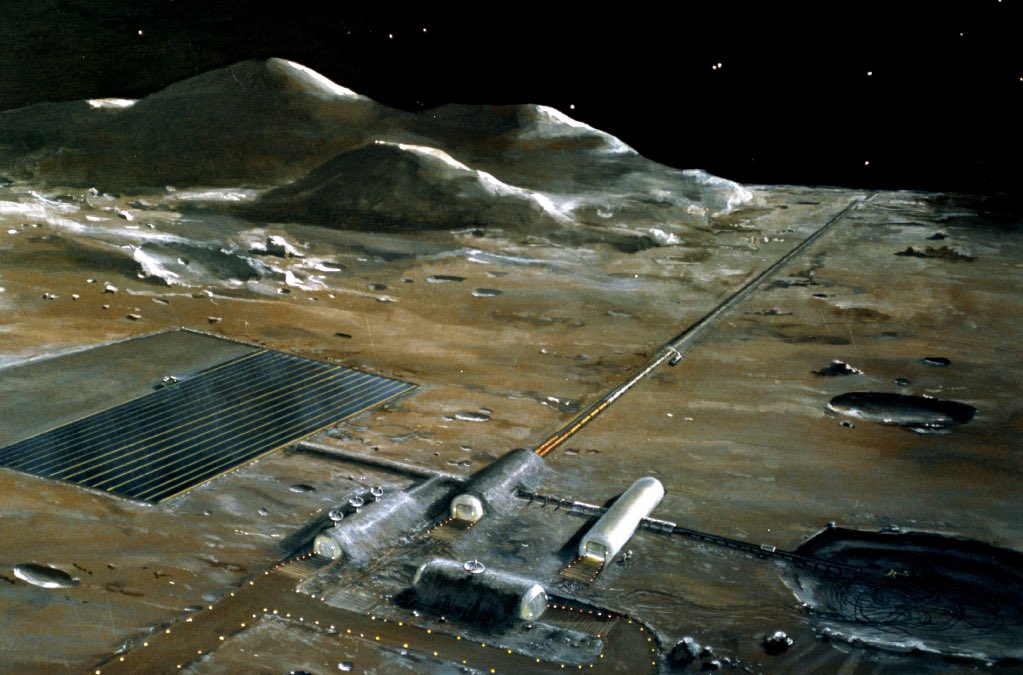This is article is a good overview of current thinking on SBSP. I will add a little about how I was changed from skepticism to cautious optimism to actual optimism. A short 🧵/1 https://twitter.com/Capoglou/status/1583045629260939264
2/ Maybe 20 years ago I was skeptical simply because I was always skeptical of every idea and especially those which come from enthusiasts, since enthusiasts are more likely to suffer cognitive bias. I was careful to never suggest that SBSP may be a benefit of space. But…
3/ …the skepticism of another skeptic shook me out of that funk because I could see he went too far. It was Pete Worden, former head of Reagan’s Star Wars program and later head of NASA Ames. Pete was never known for technological timidity, and yet he was a disbeliever in SBSP.
4/ But one time I heard him give a talk where he said that SBSP is too expensive by five orders of magnitude (100,000x more costly) compared to putting solar on the ground — e.g., by coating a desert with PV to supply national or regional energy needs. So I checked his numbers…
5/ It turns out he made a basic mistake, one which most skeptics of SBSP still routinely make. He was comparing the cost of SBSP, which is 24/7 100% market penetration baseload power, vs PV without storage or a smart grid to turn it into baseload, at ~30% market penetration.
6/ And he was using Space Shuttle or similar launch costs since newer heavy lifts were not available back then. And he was assuming no technological progress in SBSP. When you correct those, you get to within an order of magnitude of terrestrial renewables, where the latter…
7/ …are still at less than 100% market penetration — which is really hard and costly with renewables since they are mostly intermittent. (Exceptions like hydro are geographically limited and power-limited.) So if we are within 1-2 orders of magnitude, then maybe it is possible.
8/ So about 15 years ago I began to argue that SBSP is still not economically viable until after we have a full industrial supply chain operating outside Earth’s gravity well, but then it should become viable. That still pushes SBSP decades into the future.

9/ Then I was part of a very large proposal team for a gargantuan project (that was surprisingly almost funded) to directly work on that off-Earth supply chain with the goal of making SBSP viable. I worked with pro-SBSP John Mankins on that team, and got to hear his arguments.
10/ Mankins argues for hyper-modularity of the system so that large reductions in manufacturing cost can occur. If 90% of the mass consists of a small number of low-cost, easily manufactured modules, then we may get a 1-2 order of magnitude cost reduction, easily.
11/ About 4 years ago I was at a conference luncheon where Mankins was the speaker. He argued that SBSP is economically viable. Pete Worden was in the audience. After the talk, Worden immediately raised his hand and said, “I think you have convinced me.”
12/ Mankins was (and is) arguing for a version of SBSP where we don’t have to wait for off-Earth industry. The story only gets better as we add off-Earth industry. I gave a talk on this at @esa’s recent workshop.
13/ When we have lunar propellant manufacturing, the cost of boosting SBSP from LEO to GEO is cheaper. I know there are skeptics of that, too, but I have a paper that proves it currently in peer review. I will share that ASAP.
14/ Another early application of space resources for SBSP could be structural elements. That is only about 20% of the mass, so it may be a real business opportunity for metal production but by itself it is not a major reason to be optimistic or pessimistic of SBSP.
15/ In the long-run, I am very optimistic about SBSP and I think it will be crucial to health of our planet. Studies predict that energy use on Earth will continue to increase despite calls for sustainability. (image: https://www.thelancet.com/journals/lanonc/article/PIIS1470-2045%2822%2900569-1/fulltext)

16/ The 1-sigma estimate of published studies is that power demand may increase by a factor of 5 by 2100. That means the entire supply chain, making and then using the power, will increase by a factor of 5. Very bad for planet Earth! But we are a short-sighted & divisive species.

17/ (image in prior: https://education.nationalgeographic.org/resource/pollution) A practical solution to solving Earth’s climate and environment problems should not expect a magical rewriting or human nature to succeed. We should plan for increased energy use. But make it clean, and move the supply chain off-Earth
18/ To make that approach really sustainable, we will need even more recycling, which requires even more energy! The beauty of SBSP is that, in the long run, about 95% of the energy sector and the supply chain that supports it can be moved off planet. And with it…

19/ …most of the computing sector and its supply chain can be moved off-planet. By 2100 that could be ~half of our environmental burden moved off planet. One thing will become inexorably more costly: real estate on Earth. Everything else drops in cost. SBSP becomes viable.
20/ But that is really long-term, decades in the future requiring ongoing progress in robotics and AI for off-Earth industry. I am convinced we will get there in the long term. But what about near term? Should we be convinced of SBSP like Mankins and now apparently Pete Worden?
21/ I think we need continued tech progress to really prove it — that’s the way it always is with technology —, but ESA just commissioned two studies which both came back with positive responses that it is achievable. It may help the climate crisis so it is a tiny cost to try it.
22/ I am convinced it is a no-brainer to place this bet. Even if it takes a bit longer to become economic than what we think, programs like SBSP communicate confidence in the future. This motivates education among young people and a more optimistic world.
23/ And because it is a space project focused on saving Earth instead of a minority of people settling on Mars, it is likely to gain broader political support, which helps space overall (and therefore also helps the economics of settling Mars). End 🧵
100% of Profits Are Donated To Research-Backed Charities.